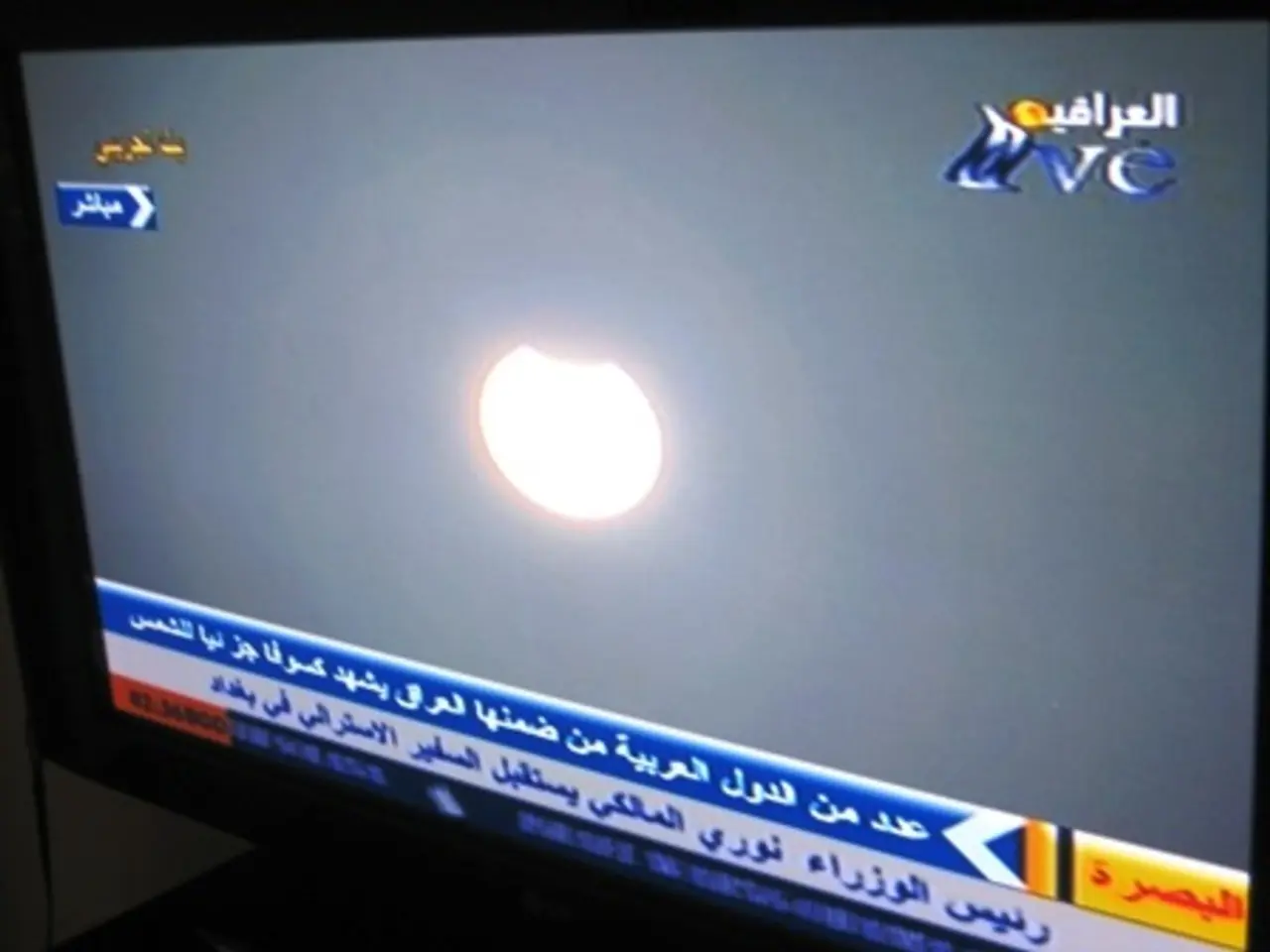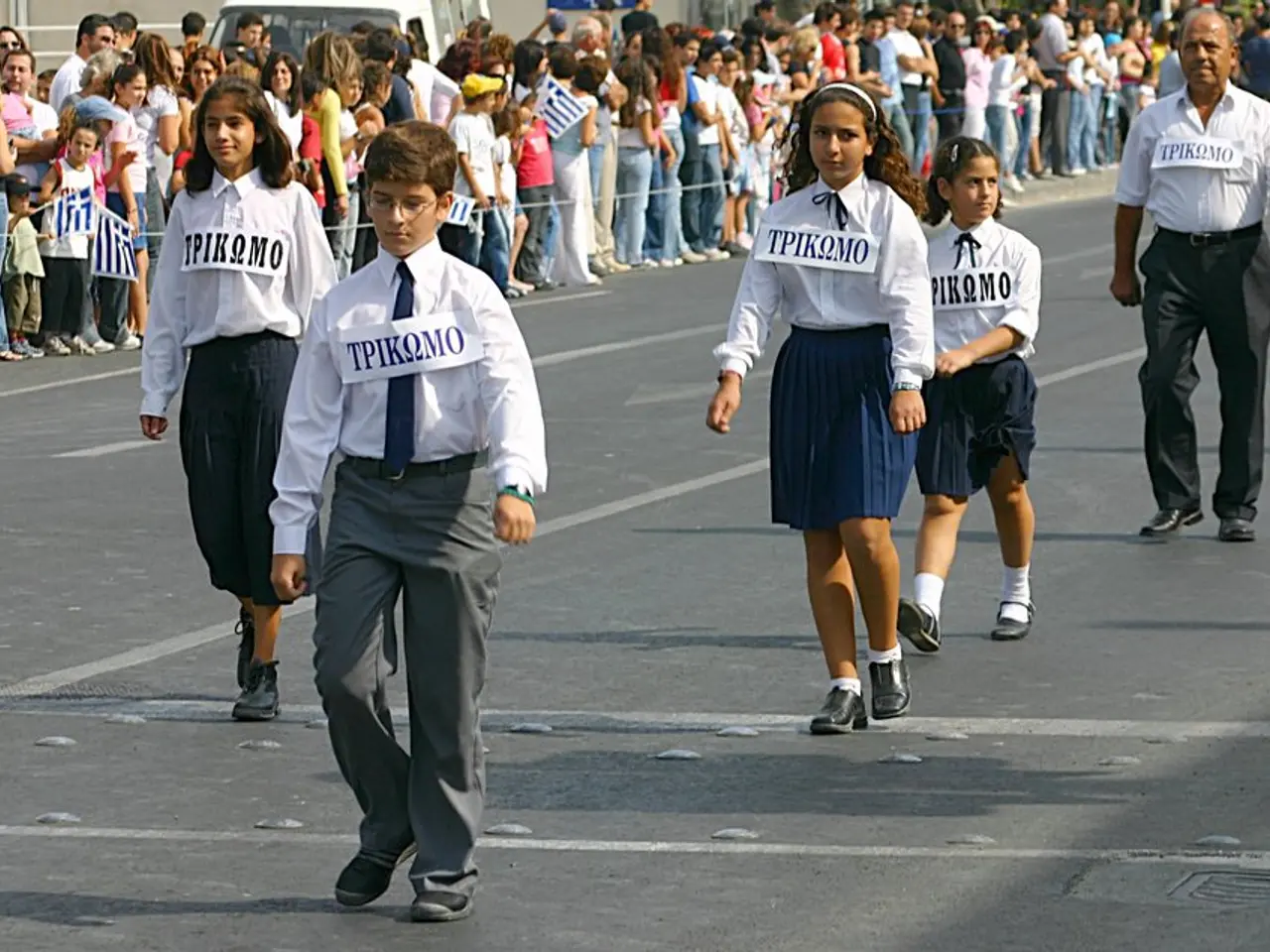Ten-Day Muzzle on Opposition Network, Turkey's Ongoing Crackdown on Freedom of Press
Broadcasting companies opposing Turkey face a 10-day ban order
In a hard-nosed move, a ten-day blackout has slammed on a popular opposition-leaning television station in Turkey, Halk TV. The Turkish Radio and Television Supreme Council (RTÜK) pulled the plug on the station, citing alleged law violations. On Thursday, RTÜK declared that Halk TV stirred up hatred among the populace. Specifically, the regulator chastised the channel for broadcasting a guest's statement proclaiming Turkey was "not becoming more religious, but more sectarian."
Halk TV shares close ties with Turkey's largest opposition party, the CHP. The party is under heavy pressure from the administration of President Recep Tayyip Erdoğan, with the latest instance being the arrest of Ekrem Imamoglu, Istanbul's mayor and a CHP affiliate. The arrest of this prominent adversary prompted a wave of protests reminiscent of the Gezi protests in 2013.
The suppression of Halk TV drew sharp criticism from Reporters Without Borders (RSF). Erol Onderoglu of RSF said to the news agency AFP, "The media regulator often arbitrarily and disproportionately penalizes any debate or criticism, fueled by the political and legal repression of the CHP. We fear that news channels supporting the opposition and CHP could be silenced in the long run."
Back in March, authorities had penciled in a blackout for opposition-aligned TV station Sözcü TV, but the decision was shelved before implementation. Currently, Turkey ranks 159th among 180 nations in the Reporters Without Borders' Press Freedom Index.
This TV censorship episode is but a part of a larger pattern of media suppression and threat to freedom of speech in Turkey. Critics argue that the regulator's punitive measures aim to quell coverage of opposition activities, much like they did to other opposition-friendly stations such as Tele 1 and SZC TV in 2025.
The media watchdog RTÜK is dominated by members appointed according to the ruling party's parliamentary clout, thereby giving the Justice and Development Party (AKP) control over the agency. This political alignment has fueled worries about media freedom erosion, as RTÜK dispenses more power to mute opposition-critical outlets. Since the thwarted coup in 2016, Turkey has escalated its media suppression efforts, shuttering close to 200 outlets and imprisoning numerous journalists, severely damaging the nation’s freedom of press standing.
To add fuel to the fire, legal actions against media owners and journalists are increasingly common. For example, an arrest warrant was filed against Cafer Mahiroglu, Halk TV's owner, for alleged bid-rigging, charges which he denies as fabricated. This legal action is just another piece of the broader crackdown on dissent.
The Community and Employment policies, in this context, might be used to examine the effects of political pressure on the employment status of journalists or media personnel in Turkey, particularly those working for Halk TV and other opposition-friendly stations.
This incident of media censorship falls under the umbrella of 'general news' and corresponds to 'war-and-conflicts' when considering the ongoing conflict between Turkey's administration and its opposition parties, leading to suppressive policies and threats to press freedom.






